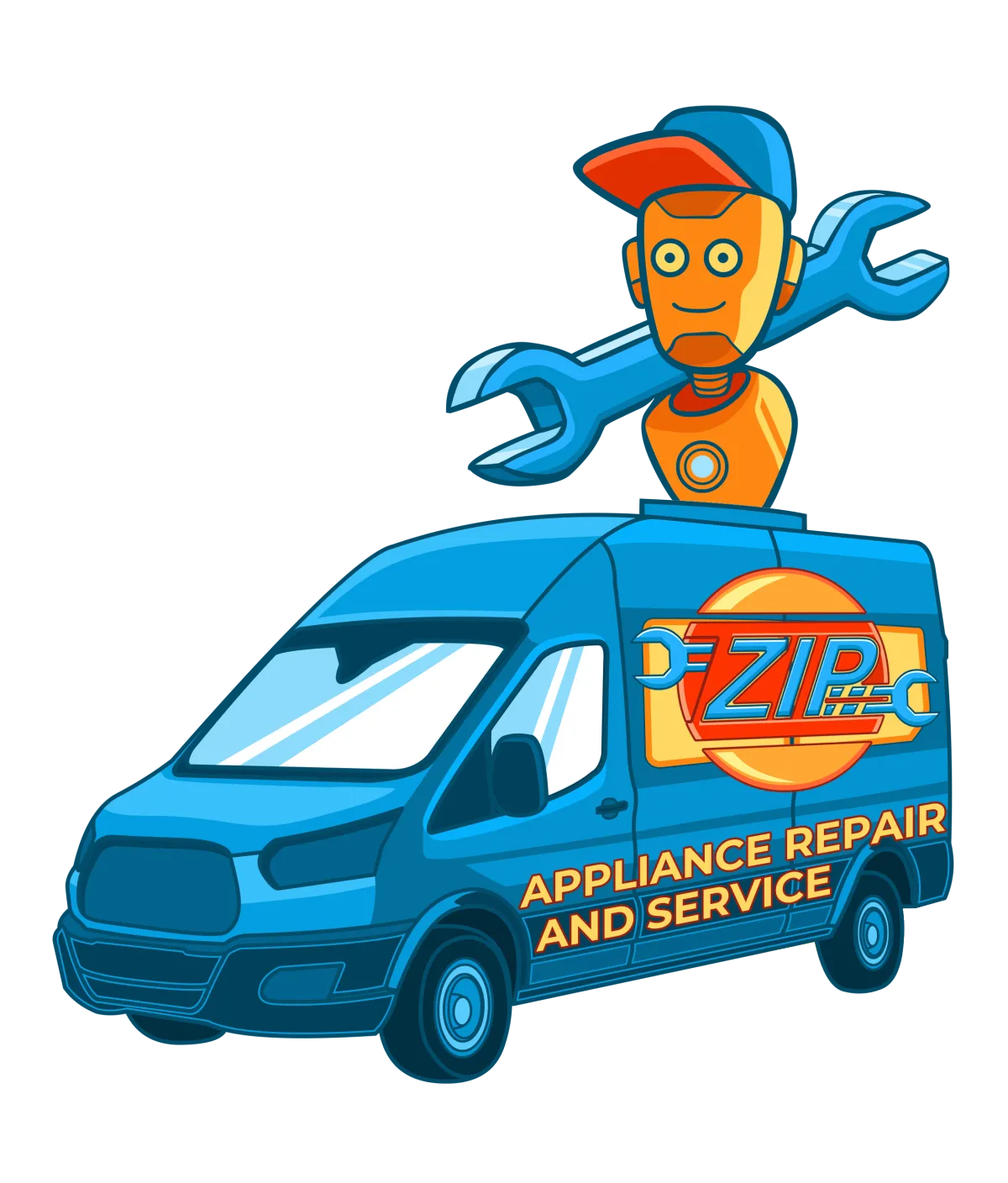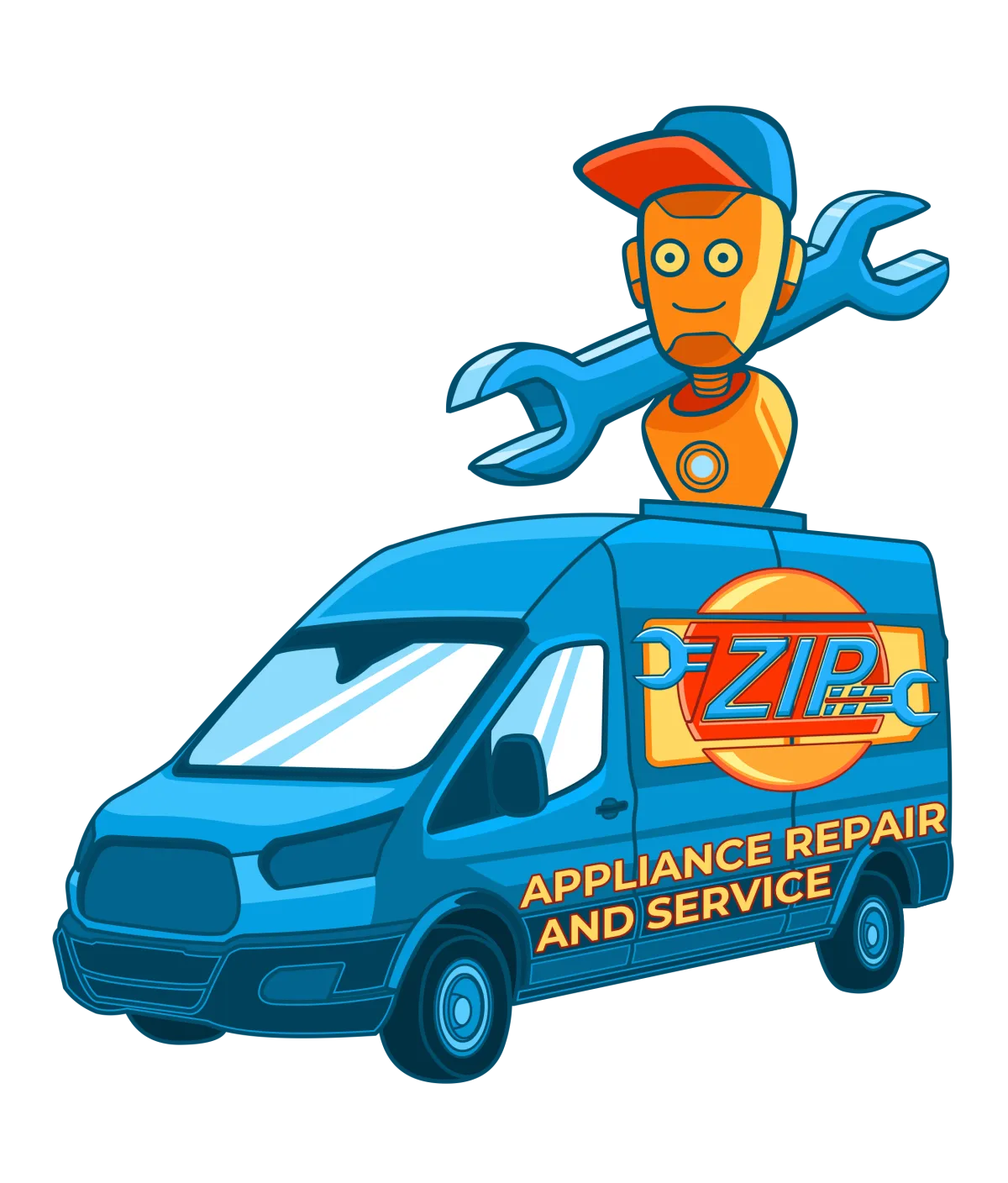THE FASTEST TOOLS IN TOWN
ZIP APPLIANCE REPAIR & SERVICE
Phone: (559) 272-4265
Phone: (559) 272-4265
Appliance Repair Tips For Fresno, CA Residents

Diagnosing and Resolving Microwave Woes
Diagnosing and Resolving Microwave Woes: A Deep Dive into Microwave Plate Not Heating Issues
Introduction:
Welcome to Zip Appliance Repair and Service, your dedicated partner in navigating the complexities of household appliances. In this comprehensive blog, we're zeroing in on a specific yet often perplexing problem – when your microwave plate refuses to heat up as expected. A cold microwave plate can throw a wrench into your meal preparation routine, but fear not! We're here to guide you through the potential causes of this issue, offering detailed insights and practical solutions to restore the warmth to your microwave plate.
Understanding the Basics
Microwaves have become an integral part of our daily lives, offering quick and efficient cooking solutions. Understanding how microwaves operate is crucial when troubleshooting issues like a cold plate.
Microwave ovens utilize electromagnetic waves to agitate water molecules in food, generating heat through friction. However, when the microwave plate remains cold, it indicates a disruption in this fundamental process.

Possible Causes! 👊
Faulty Magnetron: At the core of your microwave lies the magnetron, responsible for generating microwaves that heat your food. A malfunctioning magnetron can lead to a cold plate. Visual inspections may reveal burns or cracks, necessitating the replacement of this crucial component.
Damaged Diode: The diode converts AC power to DC power, essential for the magnetron's operation. A defective diode can hinder the heating process. Testing for continuity using a multimeter is a skill worth acquiring for DIY enthusiasts. Replacing a faulty diode, if accessible, can resolve the issue.
Defective Capacitor: Capacitors store and release electrical energy to power the magnetron. A defective capacitor can result in a lack of heating. Safely discharging the capacitor and testing for continuity are essential steps in diagnosing and resolving this issue.
Malfunctioning Control Board: The control board serves as the brain of your microwave, regulating its various functions. Malfunctions in the control board can disrupt the heating process. Inspecting for burnt components or visible damage and, if necessary, replacing the control board is a more advanced repair that requires careful consideration.
Troubleshooting Steps
Safety First: Prioritize safety before delving into any repairs. Unplug the microwave and ensure it's safe to work on. Keep in mind that even when unplugged, microwaves can store high voltages.
Inspect the Magnetron: Start by visually examining the magnetron. Look for burns, cracks, or any signs of damage. Replacing a faulty magnetron might seem daunting, but referring to your microwave's manual for guidance on accessing and replacing this essential component is a valuable step.
Check the Diode: Armed with a multimeter, test the diode for continuity. A lack of continuity indicates a faulty diode. If your microwave's diode is easily accessible, replacing it is within the realm of a DIY project. However, if it's a soldered-in type, professional assistance is recommended.
Examine the Capacitor: Safety first! Discharge the capacitor to avoid electrical shock, then test it for continuity using a multimeter. If the capacitor is faulty, replace it with a compatible one, ensuring you choose the right replacement considering the various shapes and sizes available.
Inspect the Control Board: The control board, being the brain of your microwave, demands careful inspection. Look for burnt components or visible damage. Replacing a damaged control board is a more intricate repair, and if you're uncomfortable, consulting a professional or referring to your microwave's manual is advised.
Professional Assistance: If, after thorough troubleshooting, the issue persists or if you're uncomfortable performing the repairs yourself, seeking professional assistance is a prudent choice. At Zip Appliance Repair and Service, our team of experts is well-versed in microwave diagnostics and repairs. Call us at (559) 272-4265 to schedule a service appointment and ensure your microwave is in capable hands.
Additional Insights on Microwave Components:
Understanding the intricacies of your microwave components can further empower you in troubleshooting and potentially fixing the issue. Here are more insights into the components mentioned:
Magnetron: The magnetron is a high-powered vacuum tube that converts electrical energy into microwave radiation. It's the component responsible for producing the microwaves that cook your food. If it fails, your microwave won't be able to generate the necessary heat.
Diode: The diode is a semiconductor device that allows current to flow in one direction only. In your microwave, it plays a crucial role in converting AC power to DC power, ensuring the smooth operation of the magnetron. A faulty diode can disrupt this process, resulting in a cold plate.
Capacitor: Capacitors store electrical energy and release it when needed. In microwaves, capacitors are essential for providing the power necessary for the magnetron to operate. A defective capacitor can lead to a lack of heating.
Control Board: Think of the control board as the brain of your microwave. It regulates all functions, including the timing and intensity of the microwaves. Malfunctions in the control board can significantly impact the microwave's performance, leading to issues like a cold plate.
By familiarizing yourself with these components, you gain a deeper understanding of how your microwave operates. However, keep in mind that handling certain components, especially the electrical ones, requires caution and, in some cases, professional expertise.
Check Our Website for More Tips and Expertise:
For a deeper dive into appliance tips, tricks, and expert insights, visit our website at fresno.ziprepairservice.com. Our blog section is a treasure trove of information, covering various appliances and common issues. Whether you're a seasoned DIY enthusiast or just looking to enhance your appliance knowledge, our website is your go-to resource. Explore our comprehensive guides, frequently asked questions, and stay updated on the latest trends in appliance care. At Zip Appliance Repair and Service, we believe an informed customer is an empowered one, and our commitment to excellence extends beyond repairs to providing valuable information to our community.
Showcasing Our Expert Technicians
What sets Zip Appliance Repair and Service apart is our team of expert technicians. With years of hands-on experience and a commitment to ongoing training, our technicians are adept at diagnosing and resolving a wide array of appliance issues. They combine technical expertise with a customer-centric approach, ensuring you not only receive top-notch repairs but also have a seamless and hassle-free experience. Our dedication to excellence has earned us a reputation for being a trusted appliance repair partner in the community. When you choose Zip Appliance Repair and Service, you're choosing a team that values precision, professionalism, and the satisfaction of our valued customers. Trust us to bring your appliances back to life and keep your household running smoothly.

Diagnosing and Resolving Microwave Woes
Diagnosing and Resolving Microwave Woes: A Deep Dive into Microwave Plate Not Heating Issues
Introduction:
Welcome to Zip Appliance Repair and Service, your dedicated partner in navigating the complexities of household appliances. In this comprehensive blog, we're zeroing in on a specific yet often perplexing problem – when your microwave plate refuses to heat up as expected. A cold microwave plate can throw a wrench into your meal preparation routine, but fear not! We're here to guide you through the potential causes of this issue, offering detailed insights and practical solutions to restore the warmth to your microwave plate.
Understanding the Basics
Microwaves have become an integral part of our daily lives, offering quick and efficient cooking solutions. Understanding how microwaves operate is crucial when troubleshooting issues like a cold plate.
Microwave ovens utilize electromagnetic waves to agitate water molecules in food, generating heat through friction. However, when the microwave plate remains cold, it indicates a disruption in this fundamental process.

Possible Causes! 👊
Faulty Magnetron: At the core of your microwave lies the magnetron, responsible for generating microwaves that heat your food. A malfunctioning magnetron can lead to a cold plate. Visual inspections may reveal burns or cracks, necessitating the replacement of this crucial component.
Damaged Diode: The diode converts AC power to DC power, essential for the magnetron's operation. A defective diode can hinder the heating process. Testing for continuity using a multimeter is a skill worth acquiring for DIY enthusiasts. Replacing a faulty diode, if accessible, can resolve the issue.
Defective Capacitor: Capacitors store and release electrical energy to power the magnetron. A defective capacitor can result in a lack of heating. Safely discharging the capacitor and testing for continuity are essential steps in diagnosing and resolving this issue.
Malfunctioning Control Board: The control board serves as the brain of your microwave, regulating its various functions. Malfunctions in the control board can disrupt the heating process. Inspecting for burnt components or visible damage and, if necessary, replacing the control board is a more advanced repair that requires careful consideration.
Troubleshooting Steps
Safety First: Prioritize safety before delving into any repairs. Unplug the microwave and ensure it's safe to work on. Keep in mind that even when unplugged, microwaves can store high voltages.
Inspect the Magnetron: Start by visually examining the magnetron. Look for burns, cracks, or any signs of damage. Replacing a faulty magnetron might seem daunting, but referring to your microwave's manual for guidance on accessing and replacing this essential component is a valuable step.
Check the Diode: Armed with a multimeter, test the diode for continuity. A lack of continuity indicates a faulty diode. If your microwave's diode is easily accessible, replacing it is within the realm of a DIY project. However, if it's a soldered-in type, professional assistance is recommended.
Examine the Capacitor: Safety first! Discharge the capacitor to avoid electrical shock, then test it for continuity using a multimeter. If the capacitor is faulty, replace it with a compatible one, ensuring you choose the right replacement considering the various shapes and sizes available.
Inspect the Control Board: The control board, being the brain of your microwave, demands careful inspection. Look for burnt components or visible damage. Replacing a damaged control board is a more intricate repair, and if you're uncomfortable, consulting a professional or referring to your microwave's manual is advised.
Professional Assistance: If, after thorough troubleshooting, the issue persists or if you're uncomfortable performing the repairs yourself, seeking professional assistance is a prudent choice. At Zip Appliance Repair and Service, our team of experts is well-versed in microwave diagnostics and repairs. Call us at (559) 272-4265 to schedule a service appointment and ensure your microwave is in capable hands.
Additional Insights on Microwave Components:
Understanding the intricacies of your microwave components can further empower you in troubleshooting and potentially fixing the issue. Here are more insights into the components mentioned:
Magnetron: The magnetron is a high-powered vacuum tube that converts electrical energy into microwave radiation. It's the component responsible for producing the microwaves that cook your food. If it fails, your microwave won't be able to generate the necessary heat.
Diode: The diode is a semiconductor device that allows current to flow in one direction only. In your microwave, it plays a crucial role in converting AC power to DC power, ensuring the smooth operation of the magnetron. A faulty diode can disrupt this process, resulting in a cold plate.
Capacitor: Capacitors store electrical energy and release it when needed. In microwaves, capacitors are essential for providing the power necessary for the magnetron to operate. A defective capacitor can lead to a lack of heating.
Control Board: Think of the control board as the brain of your microwave. It regulates all functions, including the timing and intensity of the microwaves. Malfunctions in the control board can significantly impact the microwave's performance, leading to issues like a cold plate.
By familiarizing yourself with these components, you gain a deeper understanding of how your microwave operates. However, keep in mind that handling certain components, especially the electrical ones, requires caution and, in some cases, professional expertise.
Check Our Website for More Tips and Expertise:
For a deeper dive into appliance tips, tricks, and expert insights, visit our website at fresno.ziprepairservice.com. Our blog section is a treasure trove of information, covering various appliances and common issues. Whether you're a seasoned DIY enthusiast or just looking to enhance your appliance knowledge, our website is your go-to resource. Explore our comprehensive guides, frequently asked questions, and stay updated on the latest trends in appliance care. At Zip Appliance Repair and Service, we believe an informed customer is an empowered one, and our commitment to excellence extends beyond repairs to providing valuable information to our community.
Showcasing Our Expert Technicians
What sets Zip Appliance Repair and Service apart is our team of expert technicians. With years of hands-on experience and a commitment to ongoing training, our technicians are adept at diagnosing and resolving a wide array of appliance issues. They combine technical expertise with a customer-centric approach, ensuring you not only receive top-notch repairs but also have a seamless and hassle-free experience. Our dedication to excellence has earned us a reputation for being a trusted appliance repair partner in the community. When you choose Zip Appliance Repair and Service, you're choosing a team that values precision, professionalism, and the satisfaction of our valued customers. Trust us to bring your appliances back to life and keep your household running smoothly.
If your dryer has been giving you problems, contact Zip Appliance Repair & Service at (559) 272-4265

Appliance Repair In A Zip
If you need a dryer repair call our Team at (559) 272-4265, or visit our online scheduling page to request service.
Appliance Repair
HAVE A QUESTION, CALL (559) 272-4265

Online Offers
Take advantage of our online discount offers - save time and money...

Residential & Commercial appliances
See what our company can do for you

Appliance Repair Tips
If your appliance is not working properly...

1405 Commercial Way ste 100
Bakersfield, CA 93309
Lic # 1116346
Equipment We Sevice
- A Call To Confirm Your Appointment Time
- A Email Detailing Your Assigned Technician
- Information Needed Before The Repair Can Be Started
- An Estimate Of Work To Be Done
© 2025 ZIP APPLIANCE REPAIR & SERVICE LLC







